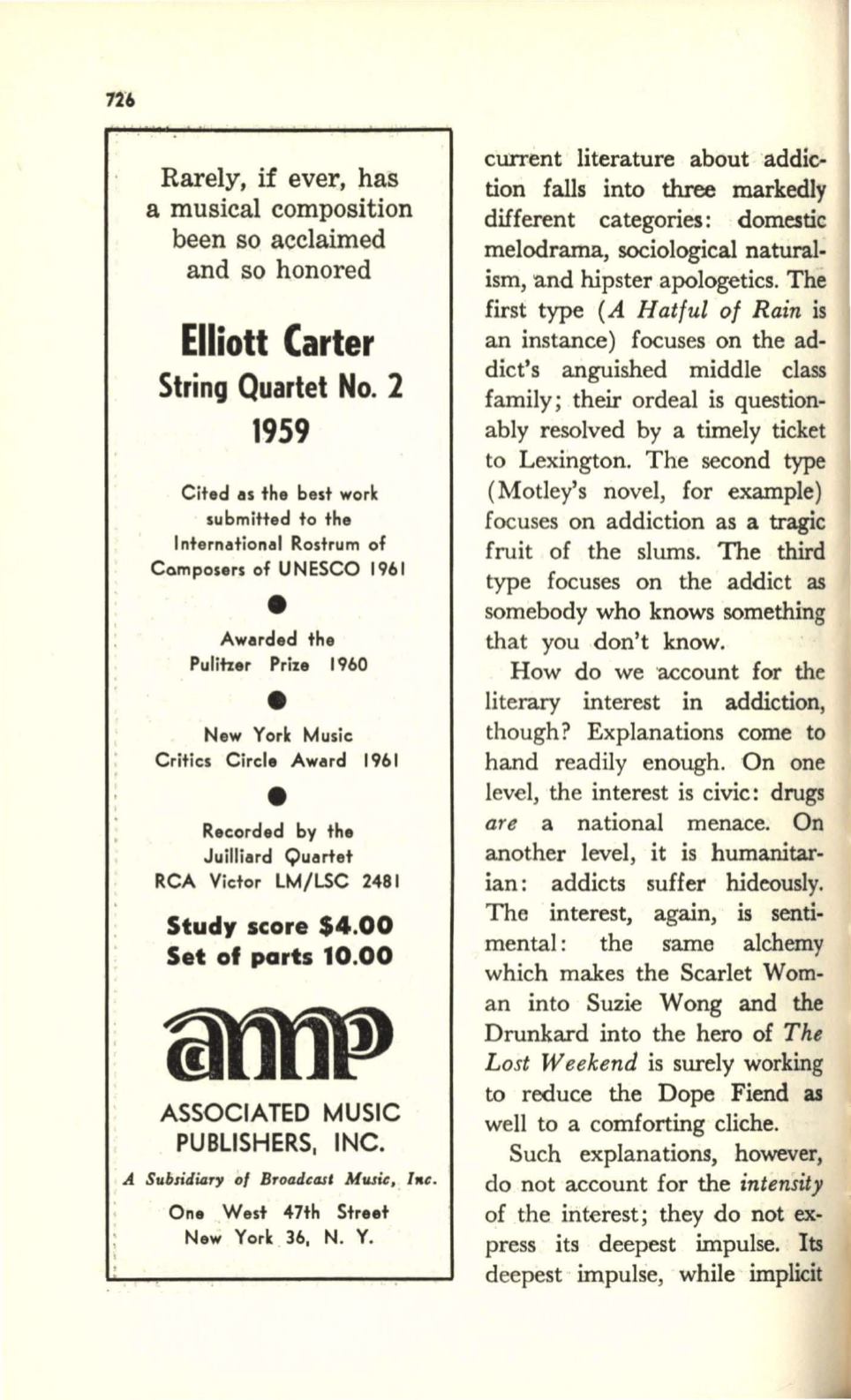
726
Rarely, if ever, has
a musical composition
been so acclaimed
and so honored
Elliott Carter
String Quartet No. 2
1959
Cited as the best work
su bmitted to the
International Rostrum of
Composers of UNESCO 1961
•
Awarded the
Pulitzer Prize 1960
•
New York Music
Critics Circle Award 1961
•
Recorded by the
Juilliard Quartet
RCA Victor LM/LSC 2481
Study score $4.00
Set of parts 10.00
ASSOCIATED MUSIC
PUBLISHERS, INC.
A Subsidiary
0/
BroadclUI Music, Ir,c.
One ,West 47th Street
New York 36, N. Y.
current literature about 'addic–
tion falls into
three
markedly
different categories: domestic
melodrama, sociological natural–
ism, and hipster apologetics. The
first type
(A Hattul
of
Rain
is
an instance) focuses on the ad–
dict's anguished middle class
family; their ordeal is question–
ably resolved by a timely ticket
to Lexington. The second
type
(Motley's novel, for example)
focuses on addiction as a tragic
fruit of the slums. The third
type focuses on the addict as
somebody who knows something
that you don't know.
How do we account for the
literary interest in addiction,
though? Explanations come to
hand readily enough. On one
level, the interest is civic: drugs
are
a national menace. On
another level, it is humanitar–
ian: addicts suffer hideously.
The interest, again,
is
senti–
mental: the same alchemy
which makes the Scarlet Wom–
an into Suzie Wong and the
Drunkard into the hero of
The
Lost Weekend
is surely working
to reduce the Dope Fiend as
well to a comforting cliche.
Such explanations, however,
do not account for the
intensity
of the interest; they do not
ex–
press its deepest impulse. Its
deepest impulse, while implicit


